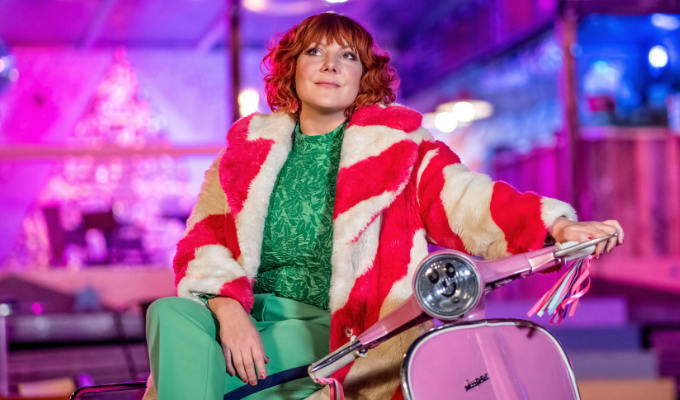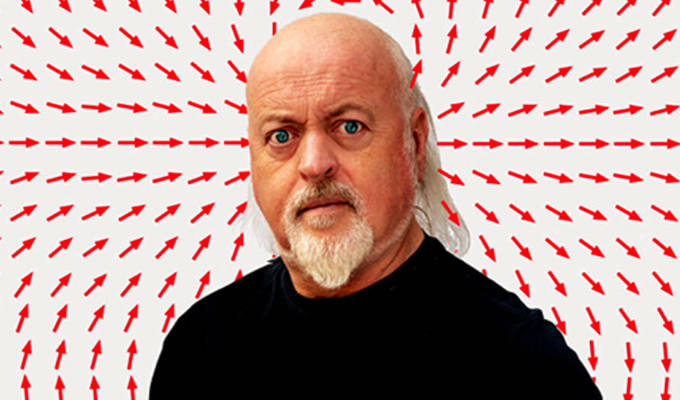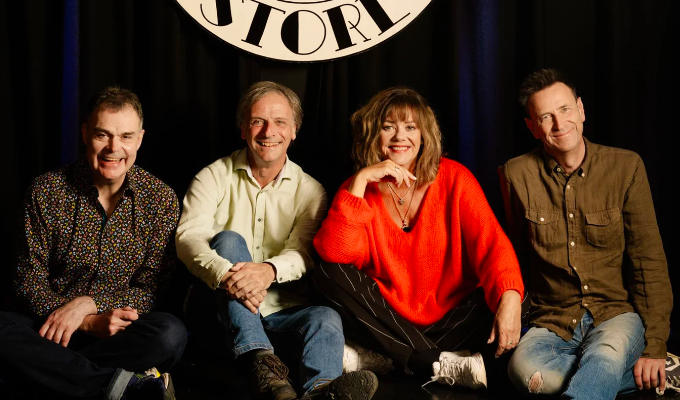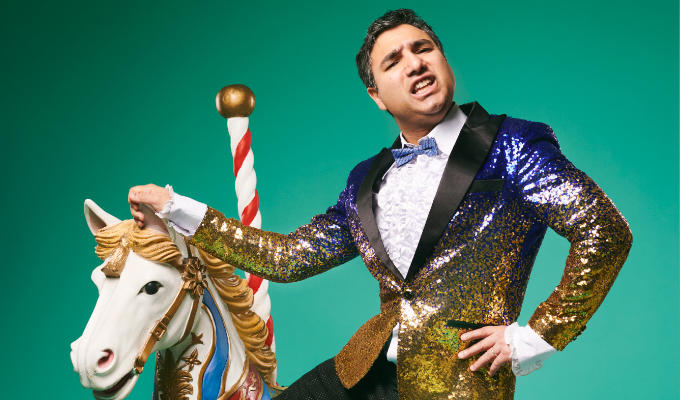 © BBC
© BBC 'Comedy is both a rebellious act and a survival mechanism'
Sophie Willan on the return of Alma's Not Normal
Sophie Willan’s acclaimed comedy Alma’s Not Normal returns for a second series on Monday. Here the comedian, who wrote and stars in the show, talks about what she wants it to depict…
We left Alma at the end of last series feeling empowered to follow her dreams. What does this series bring?
This series Alma faces a new set of challenges that change Alma forever. There is a loss of innocence; a sort of coming of age and finding her own voice – both as a person and a creative.
How difficult was it to write the second series after the first or was it always scoped out?
Once I realised that the stories I needed to tell weren’t just about Alma or personal to me – they were political, philosophical and things we need to talk about – the story just flowed out of me.
Mental health is a theme of this second series. Can you tell us more about that and how you decided to tackle it?
I continued to tackle it with humour and heart … but with more candid rage. I wanted to take the state to task and show how people’s lives have genuinely been affected for the worst by the detrimental cuts to social care services.
I wanted to show how this cycle along with the housing crisis has criminalised and institutionalised vulnerable people and particularly, I wanted to show the impact on vulnerable women.
Humour is about rage and optimism, in my opinion and the emotion of the story comes from a place of love and sadness. I believe if you’re able to tap into all these emotions and
authentically tell the story with generosity and pragmatism, that’s what will come out.
Also, Northerners have a natural gallows humour so it’s sort of innate.
Why do you think comedy can be so powerful when exploring darker themes?
Comedy is both a rebellious act and a survival mechanism. I don't really see comedy and drama as separate—they naturally co-exist. If the story is authentic and the characters feel real, the comedy and drama will seamlessly intertwine and move an
audience in equal measure.
Female relationships are central to the series. Tell us a bit about that…
I am so lucky to work with three wonderful women who are all super talented and a joy to be around.
With Shiv [Siobhan Finneran] and Lorraine [Ashbourne], I’ve learnt so much from them, while also feeling so supported and respected as a writer. I’ve fallen in love with them both and adore being on set with them. We have a lot of laughs but they always give their whole selves to the project and the character which I’m very grateful for.
Jayde [Adams] and I both came up together through stand-up and then Alma was both of our first big things, really. So it has been wonderful to share that journey
There are some very emotional scenes in this series, how did you all prepare for that?
A coffee, a pastie and a fag with Shiv before and after the scene.
Tell us how the character of Grandma Joan, as played but Lorraine Ashboure, develops..
Joan’s a joy to write because of her brilliant one liners, her original/not-normal take on day-to-day things (like feng shui or eating eggs) and her unruly, unfiltered approach to life.
She is very much like my own grandma, Denise who passed away in 2021 – and celebrating Denise through Joan is a joy and a privilege not many people get to do once they’ve lost someone.

As the series progresses, we get to explore more of Joan's childlike vulnerability and petulance, which is something we haven’t seen much of before. This vulnerability is almost
clown-like and in my opinion makes her even more loveable.
We also get to meet her family, which explains a lot - it certainly shows us where and how she developed that acerbic wit!
Alma’s best friend, Leanne, has an unwavering support of her - how does that develop in this series?
What’s brilliant about Leanne and Alma is that, despite all the chaos in Alma’s life, Leanne remains her constant - the only true, unwavering presence she can rely on.

In series 2, we see Leanne take on new challenges and start to carve out her own path, but that doesn’t shake the core of their bond. Leanne is the ideal best friend - always loyal, supportive, and unafraid to speak her mind. The joy and comedy in their relationship is a celebration of female empowerment and friendship. Everything audiences loved about their dynamic in series 1 only deepens in series 2.
Which side of Alma’s character do you like writing and playing most?
Alma is such a joy to write and play because she’s so multi-faceted; reckless, fabulous, vulnerable, passionate, sometimes all at once! The combination of fearlessness and fragility make her complex, and playing with that balance is what makes her exciting to play.
Physical comedy is always present too – how do you manage that in the writing process?
I don’t really separate physical comedy from dialogue humour. For me, it’s all about character - what they do, what they say - and I can always see that in my head as I’m writing. If it makes me laugh in the room, it goes straight into the first draft of the script!
The physical comedy naturally flows from the characters and their personalities, so by the time we get to the read-through or on set, it’s already embedded in the script. That said, things do evolve once we’re on set. The actors bring their own energy to it, and there’s often something spontaneous that adds another layer of humour.
The aesthetics and how things look and sound definitely develop as we go. I have a clear vision in my head when writing, but I’m always open to seeing how it translates visually and adjusting it based on what’s working in the moment.
What would you like viewers to take away from this series?
This series is much more about Alma finding her voice and confronting the injustices around her, so there’s definitely more rage in it. It’s bittersweet, because while Alma’s resilience and humour are still there, we don’t shy away from the reality that there’s no happy ending within a broken system.
I hope viewers come away with a deeper understanding of the challenges people face when institutions don’t support them, but also with an appreciation for Alma’s fight.
She’s not giving up, and while she might not get everything she deserves, she’s still carving out space for herself and finding her own strength. That mix of frustration and hope is really
at the heart of this series.
• Alma’s Not Normal starts at 10pm on Monday on BBC Two and iPlayer.
Published: 1 Oct 2024






